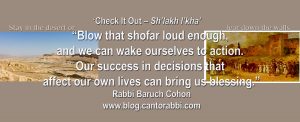WHAT’S YOUR GROUP ID?
Amid the conflicting charges we hear and see daily, pro and con about groups like Black Lives Matter, some writers accuse them of anti-American policies while others would write off the Founding Fathers as slave owners. Taking down statues and revising history will not solve today’s social dilemma.
We in the Jewish community find some of our representative organizations sincerely committing themselves to join in accusing American law enforcement of deliberate crime, and promising to help our Black fellow citizens by backing Black Lives Matter. Other Jewish spokesmen write of BLM’s alleged dependence on subsidies from anti-Semitic and anti-Israel sources like Farrakhan’s “Nation of Islam.” We all witnessed vandalism of synagogues and Jewish businesses during the recent protest marches.
Is there any solution to these vexing conditions?
Maybe we could take a basic approach to solving them. As citizens of this great country, most of us, if not all, belong to one group or another. Every group has an identity. How we analyze our group identity, individually as well as organizationally, can have a vital effect on how we all get along. For example, are you an American Black or a Black American? Am I a Jewish American or an American Jew? Which describes our loyalties more accurately, the noun or the adjective?
Whichever word best describes your group identity, what might that be? Maybe it is your family’s geographic origin. Your group could be Nordic, Slavic, Latino, Asiatic, African or a Native American tribe. Maybe your group is religious, so if it is Christian you could be Catholic, Mormon, Quaker, Evangelical, Seventh Day Adventist – or you could belong to other religions whether Jewish, Hindu, Sikh, Buddhist, Muslim – or maybe your group is Secular or Atheist.
The important question is still the same. Is your group identity primary? Is it indeed the noun that defines the basic You? Or is it the adjective? Is your U.S. identity more important? Is “American” the real You? Or is that just your address?
Recent marches and riots illustrate the vital necessity for each of us to answer this question. It’s not just coronavirus that threatens our country. It is also a widespread and risky division among us. Let’s take a deep breath, move away from political extremes, and look at our planet. Where else would we find a comparable place to live, work and build families in freedom? The noun is it, friends. Whatever heritage or doctrine colors our lives, we are Americans. Born here or naturalized, or even recent arrivals – not yet citizens but committed to making this country our home — we are Americans. If we have any sense, we will work together for a better and better future.



